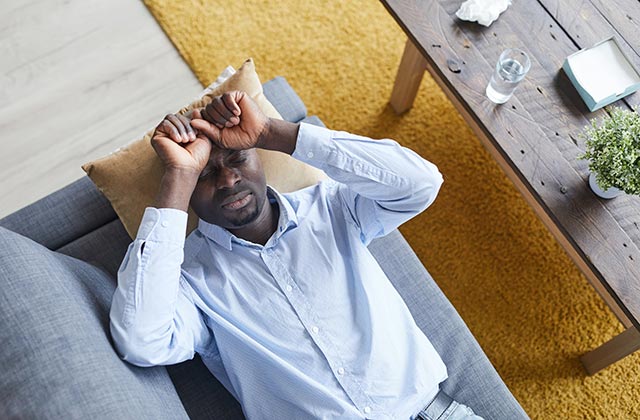Preserving our mental well-being has become a crucial challenge for everyone, especially during the past few months because of the COVID-19 threat and the drastic social and health measure implemented by authorities.
And just as we thought that we could now transition to the new normal state, the threat of a second wave comes looking around adding stress and anxiety to people young and old again.
The Canadian Mental Health Association said that one out of five Canadians will suffer a mental health issue in their lifetimes. Before the global outbreak, almost 1.6 million people in Canada complained of unsupported mental health care needs.
With the pandemic, experts see that those who are struggling with a mental health concern were twice as likely to report that their mental wellbeing has deteriorated. Health experts view COVID-19 as not just a physical threat but also a psychological one. It can induce anxiety because it is something that cannot be managed easily, unforeseeable, and extraordinarily prominent since the whole world knows about it and is experiencing it.
If you are undergoing anxiety because of the possibility of a new wave of coronavirus cases, there are things that you can do to cope with the stresses related to the pandemic. Here are strategies you can try whether you are suffering from mental issues or not:
1. Understand and remember that this will end too.
Even if the global pandemic caused drastic changes in our way of living, you must understand and always remember that it will eventually come to pass. Simple health protocols, like frequently using alcohol, hand washing, and the wearing of masks, can help you and your loved ones avoid contracting the disease.
To constantly remind you of this hope, you can assign a household item, like a succulent pot, or a personal bauble, like a ring or keychain, that will serve as a constant reminder that the pandemic will end and you will be fine. Put it in an area where you can easily see to make you remember that you can get through this and you can learn much from what is happening around you.
2. Know that everyone is affected by this.
Everyone has different ways to cope with stress. Some people might do it more effectively than others. No matter how you cope with the problems brought about by the pandemic, it is vital to remember that everyone is also experiencing similar troubles.
Health experts say that is to feel a certain level of anxiety nowadays, but what’s not advisable is for you to think that you are suffering from this alone. COVID-19 has affected the daily lives of people not only in Canada but also in the world. It helps if you talk to a neighbor or friend and share burdens and tips on how to overcome each challenge that you are facing.
3. Don’t get overwhelmed by fear – learn the facts.
Every day, there are news and updates about COVID-19 from different sources. We get information from the television, the internet, and often, from our social media accounts. Sometimes though, information overload can do more bad than good. Overconsumption of media can more likely cause anxiety. What’s even worse is that a lot of misinformation is spreading on the internet, further fueling your fear of the disease its impact all around you.
To avoid getting overwhelmed by a barrage of information, you can do two things: First, you can stay away from media once in a while. Limit your exposure to television and the internet. Have a digital device detox. The second thing you can do is to limit your news source. Choose only the reliable ones. If you are in Canada, it’s good to get your information from the World Health Organization and the Canadian government.
4. Focus on the number of recoveries – not deaths.
Remember, it’s not like we are at the mercy of the coronavirus. Health authorities from all over the world are doing their best to come up with a vaccine and effective protocols that can shield you from getting infected. These agencies also release daily updates regarding the number of cases, recoveries, and deaths attributed to COVID-19. When looking at these data, try focusing on the number of recoveries instead of the number of deaths. Only then will you notice that we are fighting this disease and not losing it.
5. Don’t isolate yourself from others.
Whatever happens, do not isolate yourself out of fear or uncertainty. Even if there are physical distancing or quarantine protocols, you can still find ways to connect to other people. Maintain open communication with friends and family through video calls, chats, or audio calls. Make an effort to reach out to other people to avoid the danger of withdrawing from the world.We are all struggling to cope with this pandemic. But if you think that you need professional help, do not hesitate to find a psychologist. If you cannot personally visit a walk in clinic in Guelph, book an appointment with an online doctor instead.

